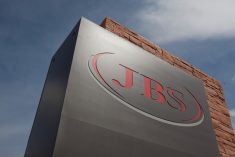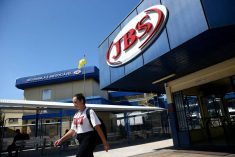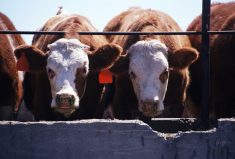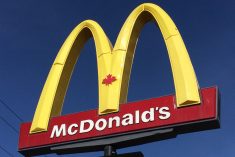Chicago | Reuters — Smithfield Foods, the world’s biggest pork processor, said on Thursday it had offered to help U.S. health officials distribute COVID-19 vaccines and store them in ultra-cold freezers that are in high demand to support a public vaccination campaign.
U.S. states, cities and hospitals are scrambling to buy freezers that can safely store Pfizer’s COVID-19 vaccine at temperatures of -70 C, significantly below the standard for vaccines.
Moderna’s vaccine can be stored at -20 C.
Smithfield, owned by China’s WH Group, has multiple “ultra-cold” freezers and will work with local authorities to provide assistance as needed, said chief administrative officer Keira Lombardo, without providing details.
Read Also

U.S. not ready to lift Mexican cattle ban over screwworm, Agriculture Secretary Rollins says
The U.S. is not yet ready to reopen its border to Mexican cattle amid an outbreak of the flesh-eating New World screwworm parasite, Agriculture Secretary Brooke Rollins said, but she is pleased with Mexico’s efforts to contain the pest.
The company is “ready and willing to assist health agencies should storage capacity become constrained,” she said in a statement to Reuters.
Thousands of meatpacking workers employed by Smithfield and rivals like Tyson Foods and JBS USA have been infected with COVID-19. Nearly 20 U.S. meat plants were shut in the spring due to outbreaks, tightening supplies, raising prices and making meatpacking one of the industries most impacted by the pandemic in the United States.
Smithfield may be able to keep Moderna’s vaccine in static freezers that store meat before it is exported or sold, said Chris Hodges, a former senior vice-president of business development for the company.
Other “blast” freezers that push cold air onto meat before it is moved into static freezers could potentially get cold enough to hold Pfizer’s version, although it would be very expensive to run them for long periods of time, he said.
“As it becomes more clear that successful vaccines will become available, we have communicated our capabilities and continued willingness to partner with health officials, including with vaccine distribution and storage,” Lombardo said.
Working with health agencies, Smithfield expects it can help distribute vaccines rapidly to food and agricultural workers hit hard by the pandemic, Lombardo said. The company also offered to aid distribution to other essential workers through healthcare offices at its facilities.
Meatpacking workers are considered essential in many states, but not at the top of the list for vaccines, which are expected to be distributed first to healthcare workers and nursing home residents.
Organizations representing food and meat companies have asked U.S. President Donald Trump and President-elect Joe Biden for priority access to vaccines for workers.
Tyson said in an e-mail to Reuters it was closely monitoring the development of vaccines and working with healthcare experts on planning and distribution models for employees.
— Tom Polansek reports on agriculture and ag commodities for Reuters from Chicago.












